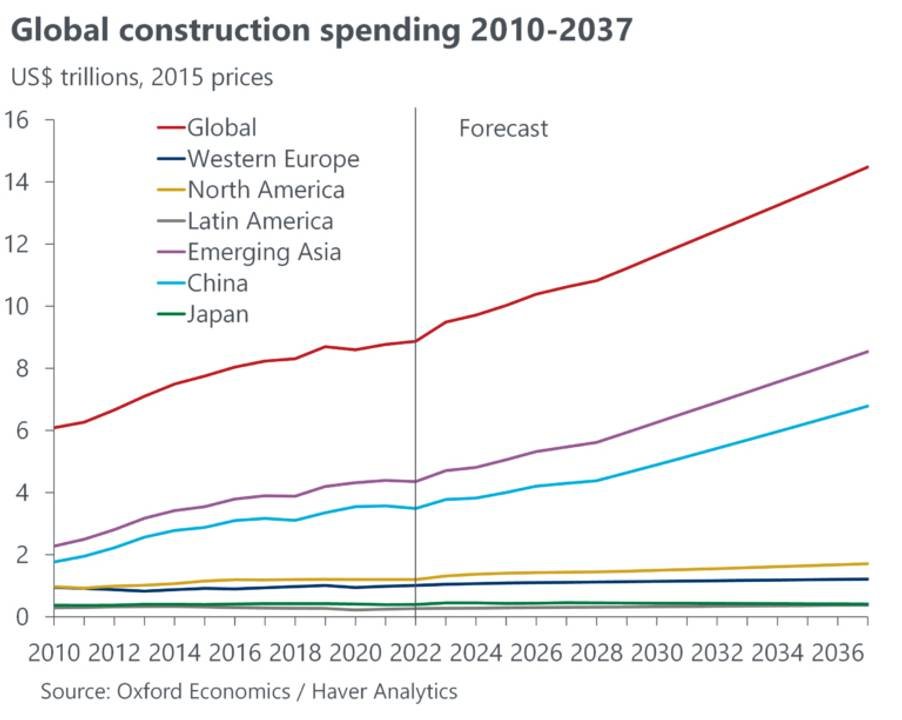Navigating the Construction Industry in 2024: Trends, Challenges, and Opportunities

The construction industry in 2024 is poised for growth and transformation, driven by technological advancements, sustainability initiatives, and evolving consumer demands. This article explores the latest trends, challenges, and opportunities shaping construction businesses today, offering insights for industry professionals and entrepreneurs alike.
Current Trends in the Construction Industry

- Adoption of Advanced Technologies
- Building Information Modeling (BIM): BIM continues to revolutionize project planning, design, and construction by enabling 3D modeling and digital collaboration.
- Drones and Robotics: Drones are used for surveying, monitoring construction progress, and inspecting sites, while robotics assist with repetitive tasks like bricklaying and welding.
- Internet of Things (IoT): IoT devices and sensors improve efficiency and safety on construction sites by providing real-time data on equipment usage, environmental conditions, and worker health.
- Emphasis on Sustainability
- Green Building Practices: There is a growing focus on sustainable construction methods and materials to reduce carbon footprints and energy consumption.
- LEED Certification: Projects aiming for Leadership in Energy and Environmental Design (LEED) certification prioritize eco-friendly design and construction practices.
- Circular Economy: Adopting principles of the circular economy involves minimizing waste, recycling materials, and extending the lifecycle of buildings and infrastructure.
- Prefabrication and Modular Construction
- Off-Site Construction: Prefabricated and modular construction techniques are gaining popularity due to their efficiency, cost-effectiveness, and reduced construction timelines.
- Quality Control: Prefabrication allows for standardized manufacturing processes and quality control in a controlled factory environment before assembly on-site.
Challenges Facing Construction Businesses

- Labor Shortages and Skilled Workforce
- Skills Gap: The industry faces challenges in attracting and retaining skilled labor, including architects, engineers, project managers, and skilled tradespeople.
- Technological Adoption: Integrating new technologies requires training and upskilling workers to operate advanced equipment and software effectively.
- Regulatory Compliance and Safety
- Safety Regulations: Strict adherence to safety standards and regulations is crucial to mitigate risks and ensure the well-being of workers on construction sites.
- Environmental Regulations: Compliance with environmental laws and regulations impacts project planning, design, and execution, especially in sensitive ecosystems.
- Economic Uncertainty and Market Volatility
- Supply Chain Disruptions: Global supply chain challenges, including material shortages and price fluctuations, affect project timelines and costs.
- Economic Cycles: Fluctuations in economic conditions, interest rates, and government policies can impact construction project financing and profitability.
Opportunities for Growth and Innovation
- Infrastructure Development
- Urbanization: Rapid urbanization drives demand for residential, commercial, and infrastructure projects in urban centers.
- Public-Private Partnerships (PPPs): Collaborations between governments and private sector entities facilitate large-scale infrastructure projects, such as transportation networks and utilities.
- Digital Transformation
- Cloud Computing: Cloud-based project management platforms enhance collaboration, data sharing, and document management among project stakeholders.
- Augmented Reality (AR) and Virtual Reality (VR): AR and VR technologies improve design visualization, stakeholder engagement, and client presentations.

- Innovation in Materials and Techniques
- Smart Building Materials: Advances in materials science introduce innovative solutions like self-healing concrete, energy-efficient insulation, and sustainable timber alternatives.
- Energy Efficiency: Integrating renewable energy technologies, such as solar panels and geothermal systems, into building designs enhances energy efficiency and reduces operating costs.
The Future of Construction: Adapting to Change
In conclusion, the construction industry in 2024 presents a landscape ripe with opportunities for businesses willing to innovate, adapt, and embrace technological advancements and sustainability practices. By leveraging advanced technologies, prioritizing sustainability, addressing workforce challenges, and navigating regulatory landscapes effectively, construction businesses can position themselves for success in a dynamic and evolving market. Whether you’re involved in residential, commercial, or infrastructure projects, staying informed about industry trends and proactive in implementing best practices will be key to achieving long-term growth and profitability in the construction sector.